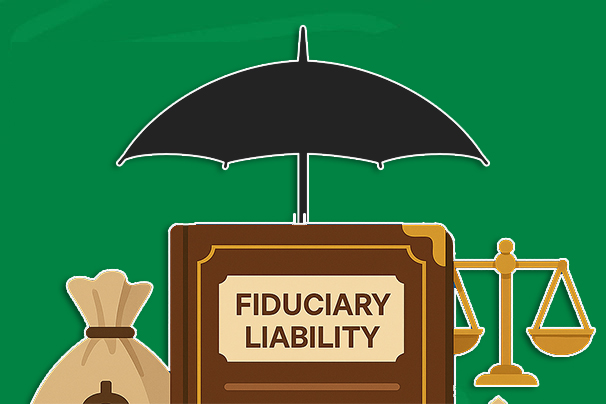What does fiduciary liability insurance mean? When selecting what company to work for, employees tend to favor companies that provide a wide range of benefits. Fiduciary liability coverage safeguards companies from mismanagement claims, particularly when a company sponsors employee retirement or health plans.

A fiduciary is someone who is recognized in a benefit plan document. It’s someone who is considered to have the ability of decision-making over the management of the plan and its assets. Fiduciaries are usually employers, officers, company directors, trustees, and plan administrators.
Who Needs Fiduciary Liability Insurance?
Small businesses that don’t have employee benefits packages generally do not need this insurance plan. However, large businesses or companies with employee benefits may need to get fiduciary liability coverage. Just like every other type of insurance, it is always advised for employers to take the safer process by considering the paperwork and processes for employee benefits, which are most times complicated. If your company offers medical, vision, 401(k), and 403(b) retirement plans, dental, or health insurance, considering fiduciary liability insurance may be a good idea.
Why do I need it?
One reason you should purchase fiduciary liability insurance is because claims are most times very costly. The costs of visiting the courts and defending yourself are high, as well as the risk of losing or settling with the accusers. As long as you have a growing business, having fiduciary liability insurance coverage can help your business. Another reason why you may need this insurance is because employee benefits. As previously stated, no matter how careful you are, mistakes may occur. However, if the fiduciary does not follow the benefits plan properly as stated, they may get sued.
What Fiduciary Liability Insurance Covers
Fiduciary liability insurance covers businesses from a majority of fiduciary mismanagement. It does not cover fraudulent activities like theft. While there are several incidents this coverage covers, the following are some of the coverage against claims that it offers:
- Errors or exclusions in plan dispensation.
- Failure to dispense the plan properly according to the benefit plan documents.
- Injudicious investment of assets.
- Automatic coverage for acquired or newly created benefit plans.
- Coverage for settlor function challenges.
- Improper denial or change in benefits.
- Unseemly advice.
How Much Does Fiduciary Liability Insurance Cost?
A limited liability company’s (LLC) or nonprofit’s fiduciary liability insurance premium may differ depending on a number of variables. Fiduciary liability coverage costs can range from a few thousand to tens of thousands of dollars annually, influenced by various factors.
- Larger organizations with higher risk levels may require more coverage and pay higher premiums.
- The insurance cost can be influenced by the scope of coverage, as organizations managing multiple employee benefits plans may need more coverage.
- The price of insurance may vary based on the particular policy and the insurance company.
Organizations should collaborate with an experienced insurance broker to evaluate their unique requirements and compare quotes from various insurance providers to secure the most suitable coverage at a competitive price.
Why Is Fiduciary Liability Insurance Important?
Businesses, organizations, and their directors and officers are protected from monetary losses resulting from allegations of improper administration of employee benefit schemes by fiduciary liability insurance. Retirement and health insurance plans are subject to intricate laws and regulations, making their management challenging and potentially risky.
Fiduciary liability coverage protects against claims, including those arising from violation of fiduciary responsibility, made by fiduciaries in charge of overseeing employee benefit plans. Without fiduciary liability coverage , fiduciaries overseeing employee benefit plans could be held financially responsible for any losses brought on by mismanagement allegations. This could include court costs and losses brought on by litigation or government inquiries into careless behavior. Nonprofit organizations face significant risks, including personal liability for directors and officers without board insurance, despite acting in good faith and in the organization’s best interests.



